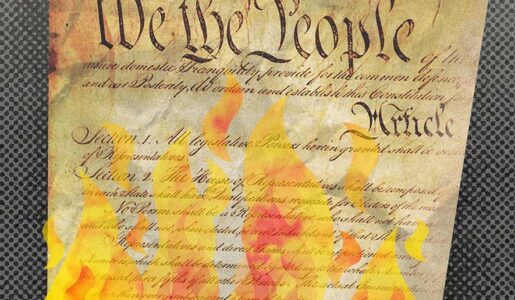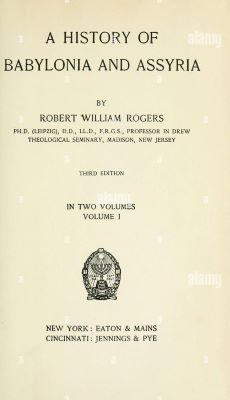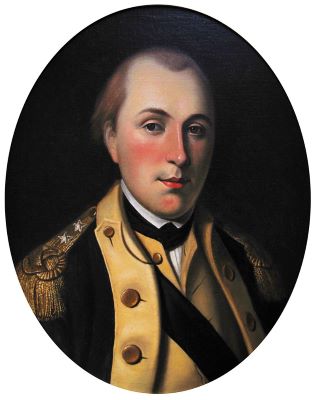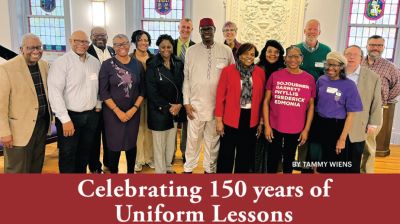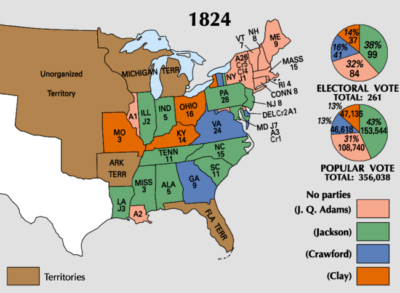
We live in historic times. I am not saying that because all times are part of history. We are at the confluence of multiple anniversaries both of which are being ignored. As reported on in previous blogs, this year marks the 250th anniversary of 1774. It is the anniversary of what became the First Continental Congress. It also was the beginning of what became America’s First Civil War. It was a time when Americans were asked to choose between Patriots and Loyalists. Families were divided.
Flash forward 50 years and the year is 1824. We were now approaching the 50th anniversary of the experiment. Would the large republic of multiple ethnicities and religions survive to reach our 50th birthday in 1826? Thomas Jefferson and John Adams still lived but barely. Founding Fathers, generals, and veterans were dying off. Think of how few people today from World War II still live to get some idea of what the country was experiencing then.
To top it off, in this time of uncertainty and fear of the looming chaos to come, we were having a presidential election with multiple sectional candidates that reflected how divided we were as a country. The two-party system was in a state of collapse. Would the country follow?
The Presidential Election of 1824: Lessons for Today
September 9, 2016
I first raised the issue of the 1824 bicentennial in a blog from 2016. I was writing about the annual SHEAR conference (Society for the Historians of the Early American Republic), July 21-24, 2016, in New Haven. The specific reason was a session on the book 1824 RECONSIDERED: A ROUNDTABLE ON DONALD RATCLIFFE, THE ONE-PARTY PRESIDENTIAL CONTEST: ADAMS, JACKSON AND 1824’S FIVE-HORSE RACE. Depending on how you count the candidates this time around, we have exceeded that number although of the candidates may be considered minor.
In the Q&A period, I asked what SHEAR’s plans were to commemorate the bi-centennial of the election of 1824 given the disarray/collapse of the current two-party system. I ended the blog with:
Maybe for the bicentennial of 1824 we should have a presidential election where candidates are entitled to their own facts and a public that doesn’t know better or how to think. Come to think of it, why wait?
At that time, I had not anticipated COVID, the COVID vaccine, or the attempt to steal the election. Nor did I realize that the 2024 election would be part of our Third Civil War and battle to determine whether we continued our journey/experiment to the 250th anniversary of the birth of the country. Still, all in all, I correctly anticipated what now defines the House of Representatives and the declaration by one candidate that if he loses again there will be another insurrection….and if he wins there will be divine retribution.
THREE-PARTY SYSTEM (Is America Ready for a Three Party System?)
December 5, 2022
The unsung 1824 Bicentennial is fast upon us. Soon it will be only a year away. The year has been a personal favorite of mine. It has been the subject of blogs since 2016.
The year marks the transition from the First Party System to the Second Party System. It was the end of the Virginian-dominated American Revolution era and start of the Jacksonian dominated one. The Federalists and the Republicans were out and the Whigs and Democrats would be in. The new system would last until the demise of the Whigs and the emergence of the Republicans under Lincoln. It also was a time of Senate giants like Henry Clay, John C. Calhoun, and Daniel Webster.
Putting aside all the talk about the Civil War today, the squabbling over the Speaker position in the House of Representatives suggests we may be in for a de facto three party system in the next session of Congress.
America is not designed for a three-party system. In Europe and Israel, multiple parties are par for the course. After every election, the jockeying for power begins by the various parties. Which one can form majority? That is not the American way where the two-party system is sacred.
Until now. Right now the House of Representatives beginning in January [2023] is divided into three groups:
213 Democrats
182 Republicans
40 Freedom Party.
No one of the groups has the magic 218 votes needed to form a majority and elect a speaker. There has been talk of multiple ballots in an unprecedented situation. Perhaps Kevin McCarthy will deal for the position he has coveted. Perhaps he will drop out when he realizes he cannot win and a host of new candidates will emerge. Perhaps cross-party deals will be made. We are in uncharted waters.
Voters are concerned about jobs, inflation, the economy and the threat to democracy. By contrast the Freedom Party agenda consists of:
Relitigating the 2020 election
Investigating Hunter Biden
Investigating the House Select Committee
Impeaching Joe Biden.
None of these issues are on the radar of the Real Republicans.
In other words, even if McCarthy wins the battle to become Speaker, his problems are only just beginning.
All in all, this blog from 2022 has proved to be quite accurate. McCarthy did win the battle but his problems were just beginning. Soon he would be out not only as Speaker in the House of Representatives but out of the House all together.
The MAGAs would vigorously pursue their investigation agenda. So far they have nothing to show for it. But never say never, they keep trying and will continue to do so.
Now the governing of the House has become one where Democrats and Real Republicans have joined together to get things done. Through various mechanisms and procedural tricks of the trade, they have banded together to pass legislation. They even saved the position of the current House speaker to the chagrin of Marjorie Taylor Greene. Her attempt to chastise the wayward Republicans and remove Mike Johnson only revealed the limitation of power of the MAGA wing of the Republican Party. Each time Real Republicans and Democrats band together it becomes easier for the next time. The Democratic Minority leader is being hailed as the most powerful person ever to hold that position
The net result is the remainder of this Congressional term should be smooth sailing except perhaps in some committees/subcommittees.
THE FOUR PARTY SYSTEM
The current three party system obscures the existence of a four party system. I live in the 16th Congressional District of New York, ground zero for the war between Regular Democrats and Woke or Progressive Democrats.
Full Disclosure: I have known George Latimer for many years. He has helped arranged funding for the education programs in IHARE. Most recently he declared August 18, 2024, Lafayette Day in Westchester County at my request for the bicentennial of Lafayette’s return visit to the United States in 1824-1825. It included one day in Westchester.
The primary battle between the incumbent Representative and the incumbent County Executive who seeks the position of the former has been hot and heavy. I am not going to cite chapter and verse of the positions of the two candidates on October 7 and the war against Hamas. I do, however, note, its importance to the primary confrontation. It is expressed in the language of political discourse, the funding for the two candidates, and the switch of voters from independent and Republican status to Democrat to vote in the Democratic primary.
Latimer is a traditional Democrat who rose up through the ranks in local, county, and state positions before assuming an executive position instead of a legislative one. During these times he has been practically everywhere at events and meetings and touts his personal experience as an Irish-Italian kid in a Black neighborhood in Mount Vernon where he grew up.
Bowman, by contrast, was a middle school principal from the Bronx who had no previous political experience before defeating a Democratic incumbent himself. He is a frequent guest on MSNBC which also differentiates him from his opponent.
This battle between the Regular Democrat and the Woke Democrat should not be viewed as the one and only battle between the Progressives and the Real Democrats. Given the time and money being spent to defeat Bowman in the primary, a victory by him would signify that the times they are a changing in this reliable Democratic district. And even if Bowman loses, one may anticipate more and more fissures in the Democratic Party in the House of Representatives if the Democrats prevail in the November elections.
In November, it will not only matter which party wins, but which wing wins: Regular Democrats, Regular Republicans, Woke, or MAGA. Even if there is no formal separation, the days of the two-party system in the House may be over.
THE COLLAPSE OF 1824
Given this context, we can start to better understand some of the developments in politics and the arts occurring at the same time two hundred years ago.
The 1824-1825 tour of the Marquis de Lafayette provided a living link to the American Revolution for people in all 24 states.
The 1825 View from Fort Putnam painting by Thomas Cole provided hope that the forces of darkness (Benedict Arnold) surrounding West Point would be overcome and the journey would continue.
The writings of James Fenimore Cooper and Washington Irving extended the story of the country back to the colonial times of the French and the Dutch.
These national events in art, literature, and politics helped to develop a national sense of identity related to but in addition to the American Revolution.
In hindsight, we know, of course, that the country did not collapse following the 1824 election. That day of reckoning was delayed to the collapse of the Second Party system and the leadership of Abraham Lincoln who became the Republican President. We did divide into the Union and the Confederacy, a division which continues to divide us to this very day … without the large battlefield encounters on lands that became National Park Service sites.
At this point, it is too early to tell what will happen after this presidential election. Perhaps all one can say is that it will be ugly and plans for the 250th may need to be changed assuming you even have any.


